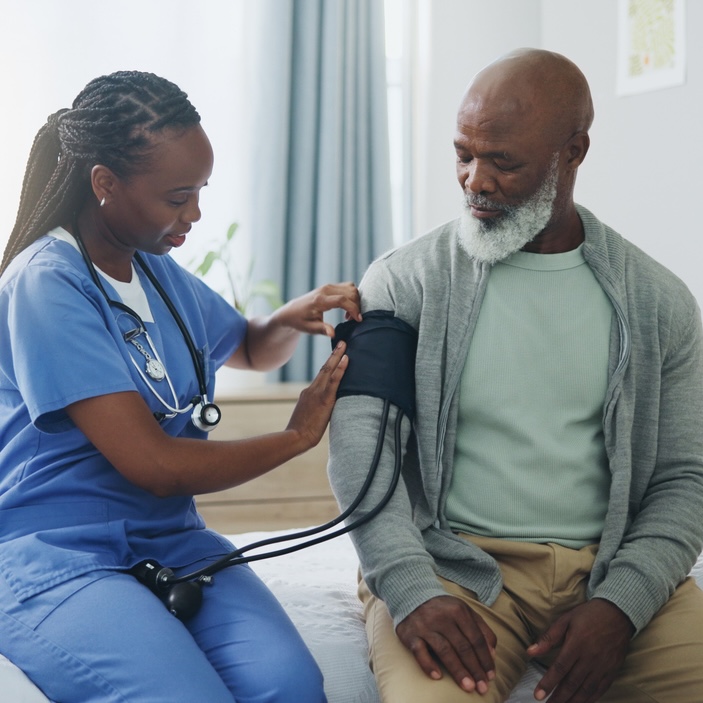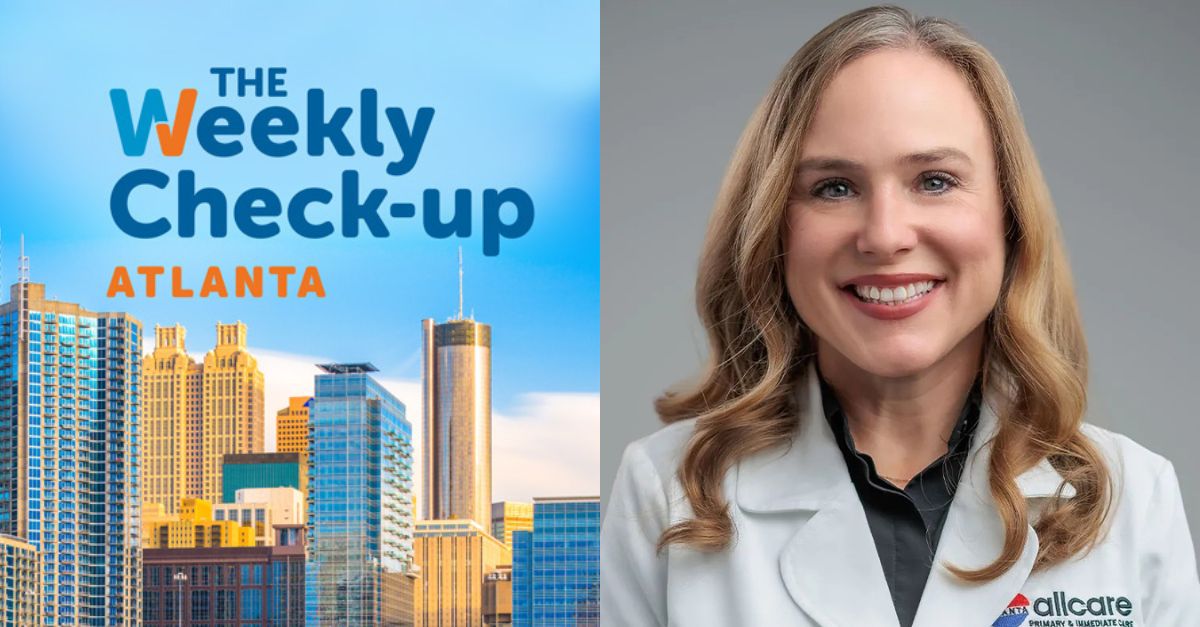AllCare is pleased to announce the opening of its newest location in Braselton, expanding access to high-quality, patient-centered healthcare for...
Headache Treatment in Georgia
Headache Relief and Treatment
From mild to pounding, a headache can make it difficult to concentrate, cause nausea, or even lead to vertigo. At AllCare Primary & Immediate Care, we provide comprehensive care for headaches. Our experienced specialists are dedicated to your well-being. They will work with you to identify the underlying cause of your headaches, offering a precise diagnosis and personalized treatment plan that prioritizes your health every step of the way.

Get Prompt Headache Treatment:
Our Approach to Headaches Symptoms
At AllCare Primary & Immediate Care, we recognize the importance of addressing your headache concerns quickly. Our team of urgent and primary care providers is equipped with the expertise to assess your symptoms and accurately provide a personalized treatment plan that will help relieve your discomfort. With a variety of diagnostic tests and treatments, we can address your headache needs and alleviate your pain.
Whether you’re experiencing a mild headache or a more severe one, AllCare Primary & Immediate Care is here to simplify your healthcare journey by providing comprehensive headache services in one convenient location.
Our Headache Testing and Treatment in Georgia

What is a Headache?
A headache is a common experience that causes pain or discomfort in the head, scalp, or neck. It can feel like a mild annoyance or, in some cases, be intense and even debilitating. Headaches happen when pain-sensitive areas in the head, like nerves, blood vessels, or muscles, are triggered.
Common headache symptoms include:
- Mild to moderate pain on both sides of the head
- A dull ache that may feel like a band around your head
- Neck and shoulder pain
What Causes Headaches?
Headaches can have many different causes, ranging from lifestyle factors to underlying medical conditions. Understanding the root cause is key to finding effective relief. Here are some common causes of headaches:
- Emotional or physical stress can lead to tension headaches, which are often described as a tight band of pressure around the head.
- Not drinking enough water can trigger headaches, especially in hot weather or after physical activity.
- Lack of sleep, sleeping too much, or a disrupted sleep schedule can lead to headaches.
- Certain foods and drinks, like caffeine, alcohol, processed meats, or foods high in MSG, can cause headaches in some people.
- Fluctuations in hormones, especially in women during menstruation, pregnancy, or menopause, can lead to migraines.
- Headaches can be a symptom of health issues like sinus infections, high blood pressure, or even more serious conditions like a concussion or meningitis.
Types of Headaches
There are more than 150 types of headaches, which can be classified as primary or secondary. Primary headaches have no identifiable cause and are not a symptom of another medical condition. Secondary headaches, on the other hand, are caused by an underlying condition, such as a neck injury, sinus infection, or brain tumor.
Some types of primary headaches include:
- Migraines
- Tension headaches
- Cluster headaches
- Trigeminal autonomic cephalalgias, which causes pain on one side of the face, as well as other symptoms
- Primary stabbing headaches, also known as “ice-pick” headaches, are short, sudden, and severe headaches.
Secondary headaches include:
- Sinus headaches
- Medication overuse headaches, which can result from taking too much medication or starting a new drug
- Spinal headaches are caused by low cerebrospinal fluid (CSF) pressure, which can occur due to a spinal tap, spinal anesthesia, or a CSF leak
- Thunderclap headaches are sudden and severe, reaching peak intensity within a minute. They are considered a medical emergency because they may signal a life-threatening condition, such as a stroke.
- Caffeine headaches, which can result from either caffeine withdrawal or excessive caffeine consumption
- Hormonal headaches are caused by fluctuations in hormone levels
- Hypertension headaches are triggered by a significant rise in blood pressure


Online Doctor Visits and Telehealth Services
Experience the convenience of telehealth appointments at AllCare Primary & Immediate Care. Our telemedicine services are designed to provide you with seamless access to healthcare without the need to leave your home. Whether you need an online doctor’s appointment for immediate or primary care, AllCare Primary & Immediate Care’s got you covered. With our online telehealth services currently available to individuals located in Georgia, you can connect with our experienced urgent and primary care physicians via secure video calls.
At AllCare Primary & Immediate Care, we are expanding our virtual healthcare access to all services previously offered in person. This includes:
How Do I Get Headache Treatment at AllCare Primary & Immediate Care
Getting a diagnosis and a personalized treatment plan for your headache is as easy as scheduling an appointment at AllCare Primary & Immediate Care. Here are a few simple steps for getting treated for headaches:
- Book online or contact AllCare Primary & Immediate Care to schedule an appointment for your headache. Be sure to provide essential information about your symptoms and medical history.
- Receive Your Treatment Plan: Our healthcare providers will evaluate your symptoms, perform any necessary tests, and develop a personalized treatment plan that may include medications, lifestyle changes, at-home remedies, and stress management.

Frequently Asked Questions
Why do I wake up with a headache?
Waking up with a headache can happen for a variety of reasons. Poor sleep posture might strain your neck and shoulders, while teeth grinding (bruxism) can cause jaw tension that leads to pain. Sleep apnea, which disrupts breathing and lowers oxygen levels during sleep, is another common cause. Dehydration, stress, or caffeine withdrawal can also trigger morning headaches. Sinus congestion from allergies or infections may build up overnight, adding pressure and discomfort. If morning headaches persist, it’s a good idea to see a doctor to check for underlying issues like sleep disorders.
What’s the difference between a headache and a migraine?
The main difference between a migraine and a headache is the severity of the pain. Migraines can also cause nausea, vomiting, light or sound sensitivity, and vision problems. Migraines are more debilitating than headaches, as they can affect your entire body.
Does a migraine or a headache affect my brain?
A headache may feel like pain inside your brain, but there has not been any proven research showing that migraines or headaches cause any type of brain damage. Most headaches start in the nerves, muscles and blood vessels in your head, neck or face.
Can I prevent a headache?
No, you can’t completely prevent a headache, but there are steps you can take to reduce the likelihood of getting one and lessen the pain if you do.
- Avoid common triggers, like processed meats, artificial sweeteners, caffeine, and alcohol.
- Get regular exercise.
- Get enough sleep.
- Don’t use tobacco.
- Try to control stress in your life.
- Rest in a dark, quiet room when you feel a headache coming on.
- Place an ice pack on the back of your neck.
How to relieve tension headache?
Tension headaches often feel like a tight band around your head and are usually caused by stress or muscle strain. Try using a warm compress on your neck or a cold compress on your forehead to ease the pain. Relaxation techniques like deep breathing or meditation can help too. A gentle massage of your temples or neck can also release tension. If these headaches happen often, talk to your doctor for more guidance.
schedule your headache treatment appointment
The Latest Healthcare News
Check out our blog to learn more from our team about the latest medical advancements, health tips, and primary care news.
Lauren Schwartz, F.N.P.-C. of AllCare Appeared on “The Weekly Check-Up” Radio Show
Lauren Schwartz, F.N.P.-C. of AllCare Primary & Immediate Care appeared as a featured guest on “The Weekly Check-Up” on December 21, 2025. The...
AllCare’s Dr. Racheal Daniels Discusses Holiday Health and Primary Care on WSB-TV’s “Daily 2”
Dr. Racheal Daniels of AllCare Primary & Immediate Care recently appeared on WSB-TV’s Daily 2 to discuss the importance of prioritizing primary...







